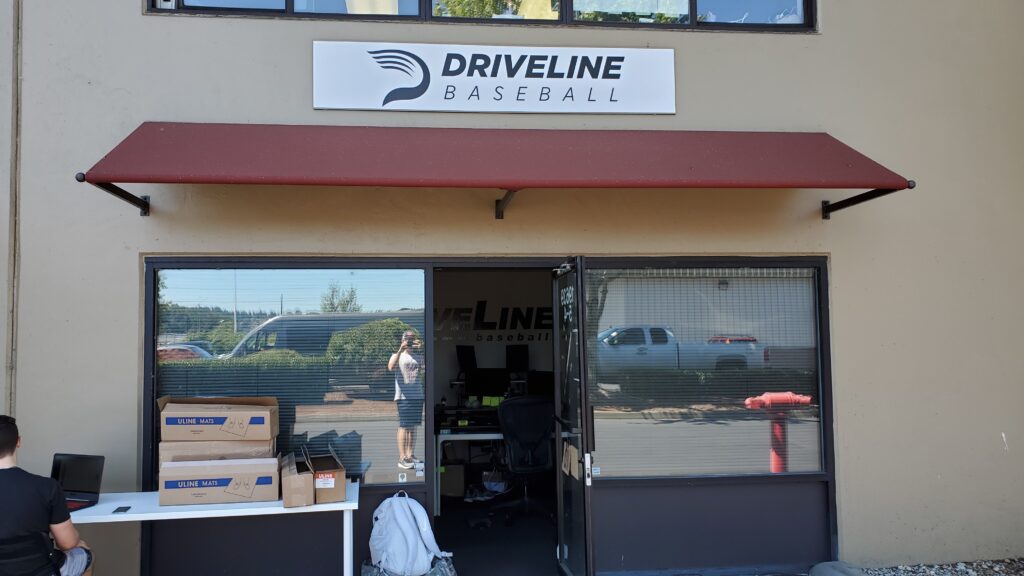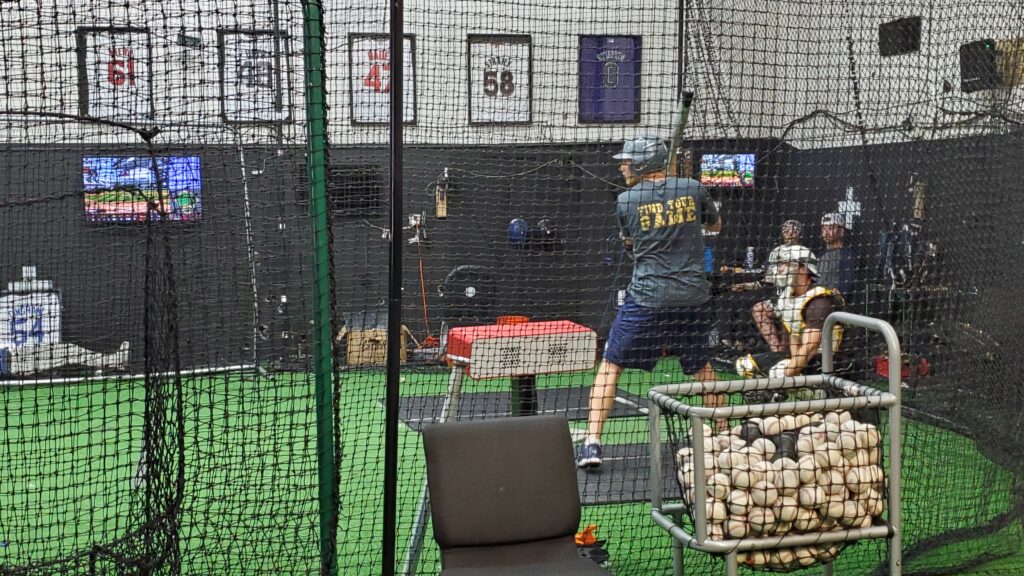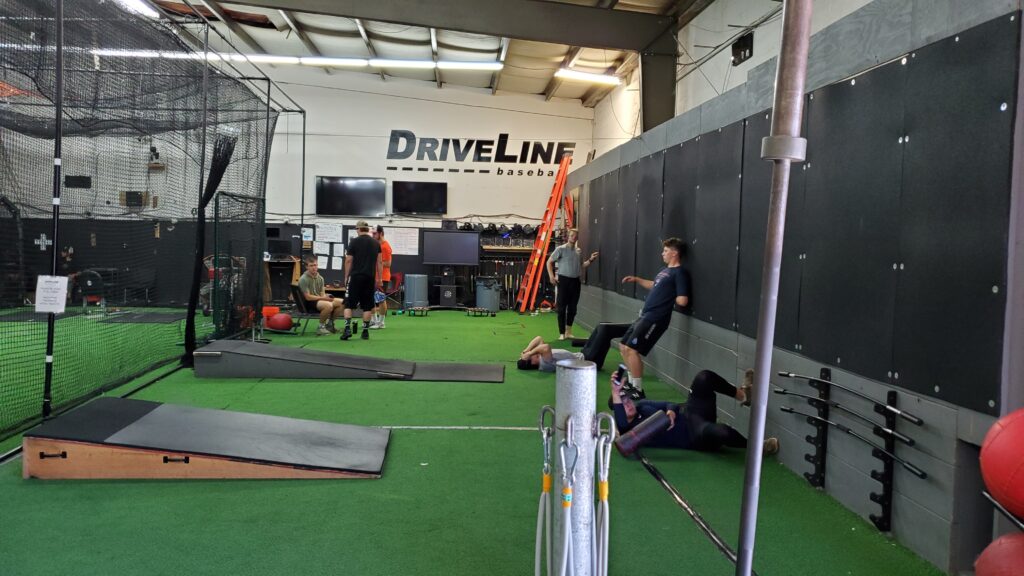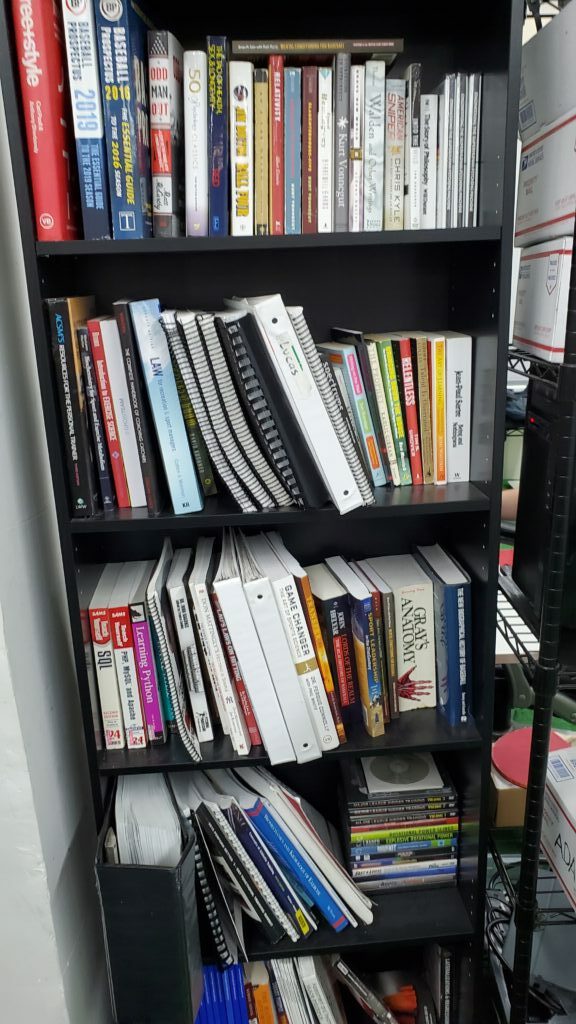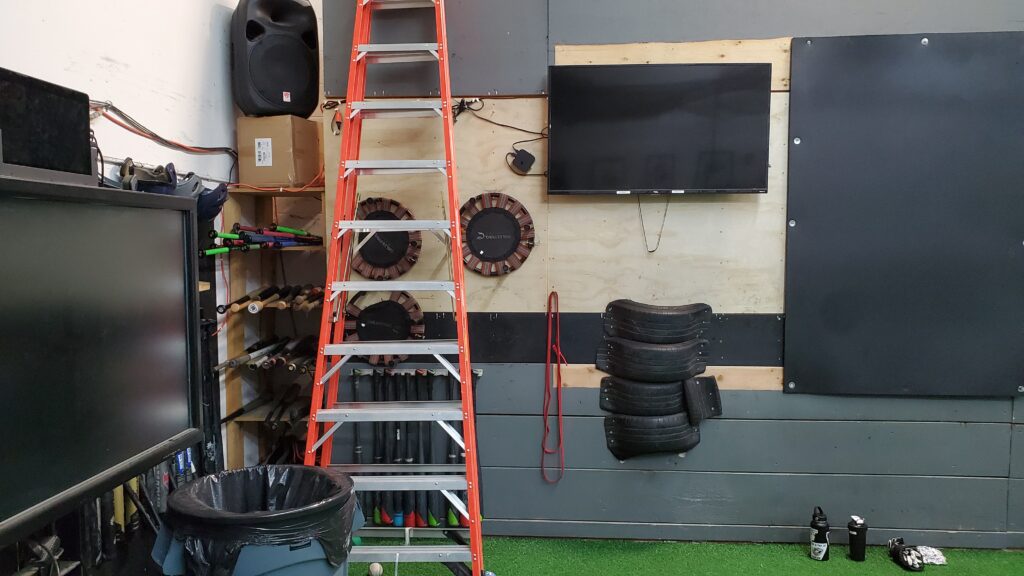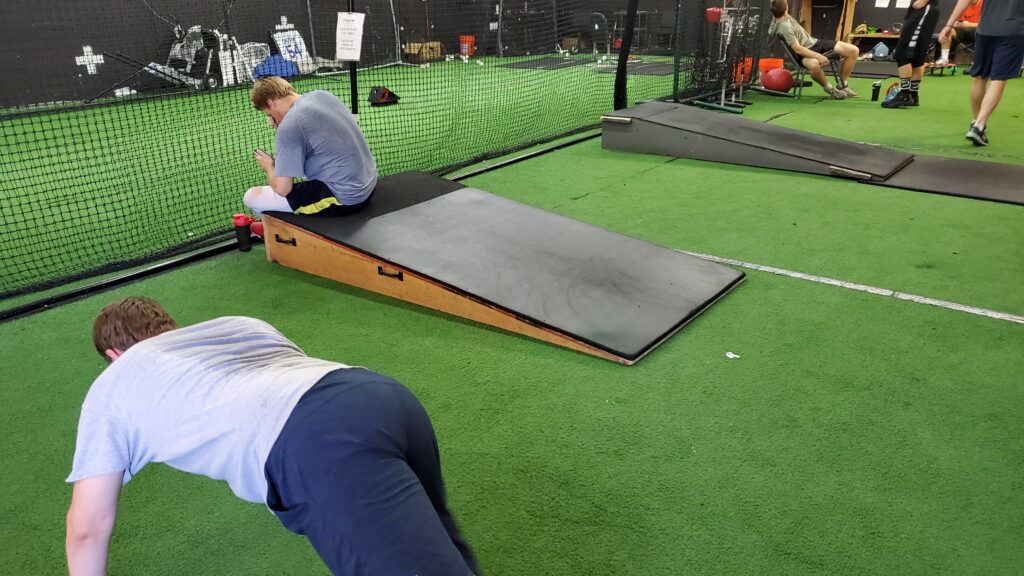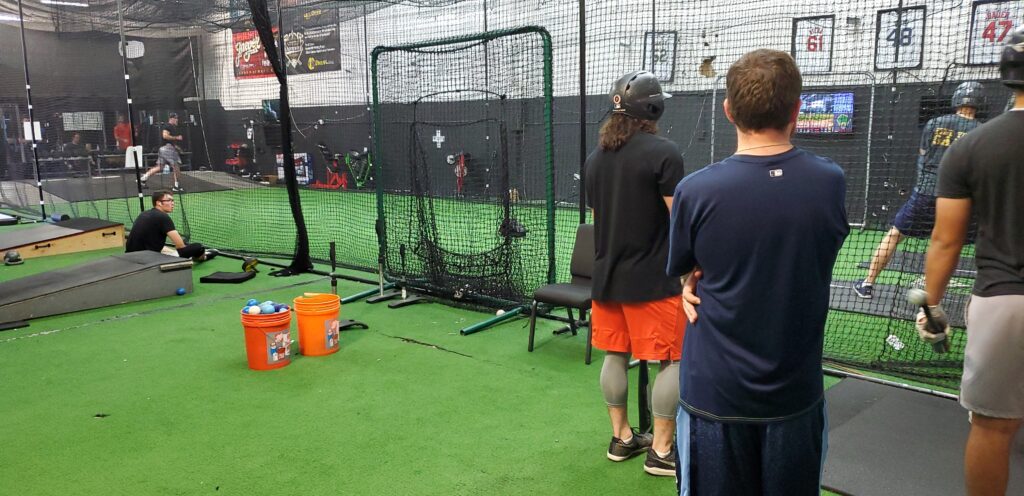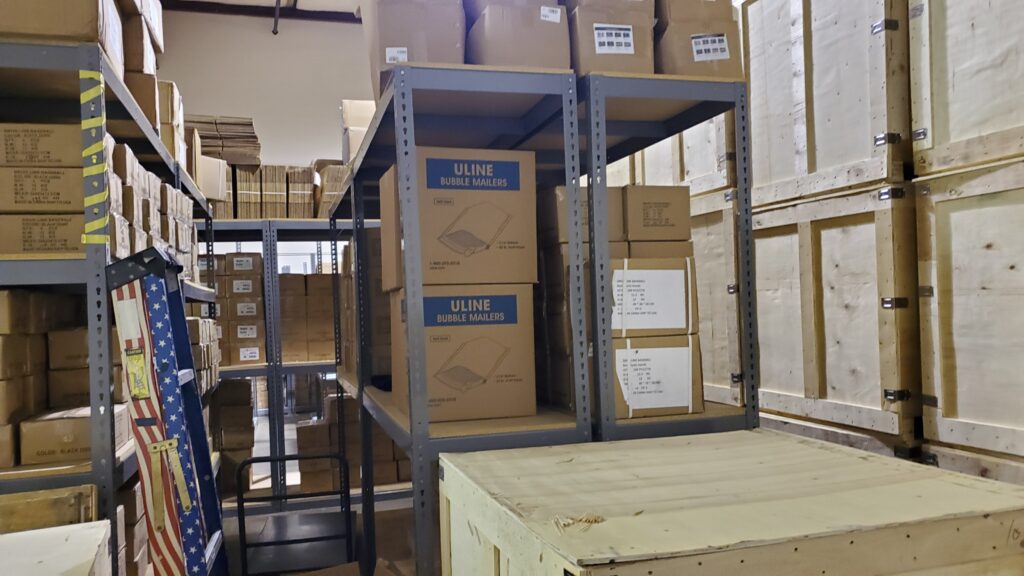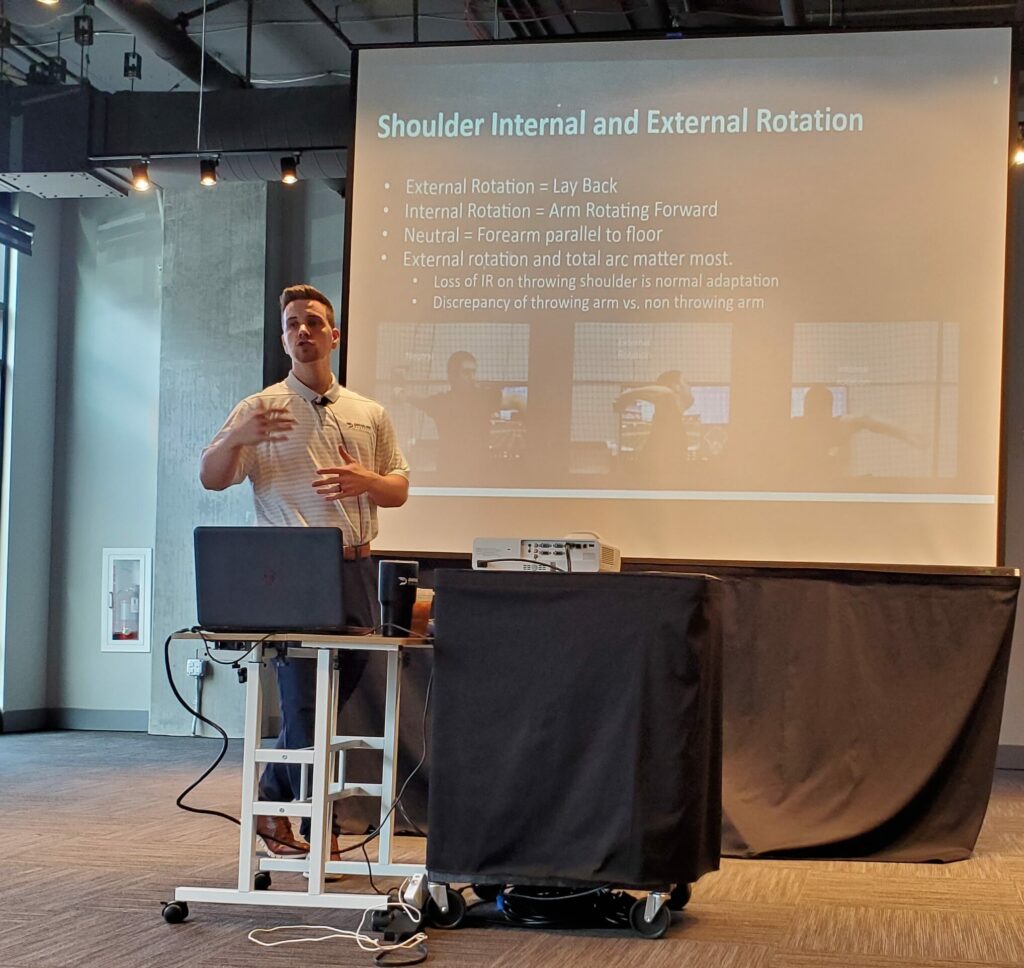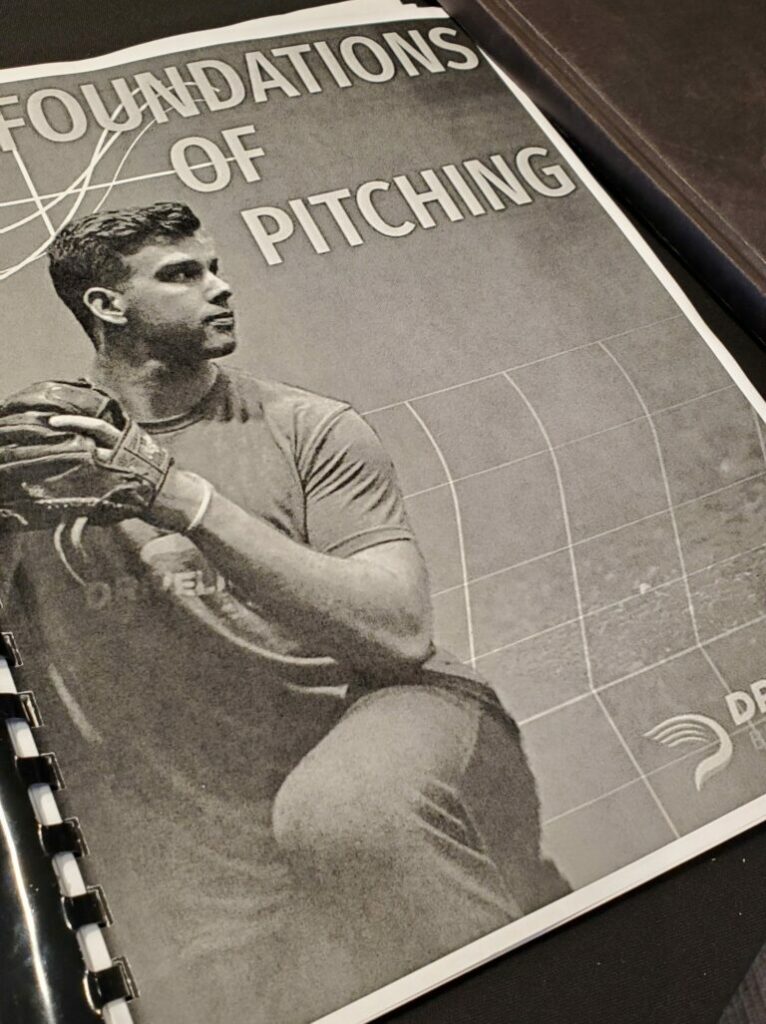COACHING EVENTS SERIES: Driveline Baseball Foundations of Pitching
Currently only hosted in Kent, Washington, Driveline Baseball’s staff has put together an incredibly thorough certification for pitchingcoaches and instructors. The coaches certification course is called the “Foundations of Pitching” and it is one of the first courses they’ve rolled out.
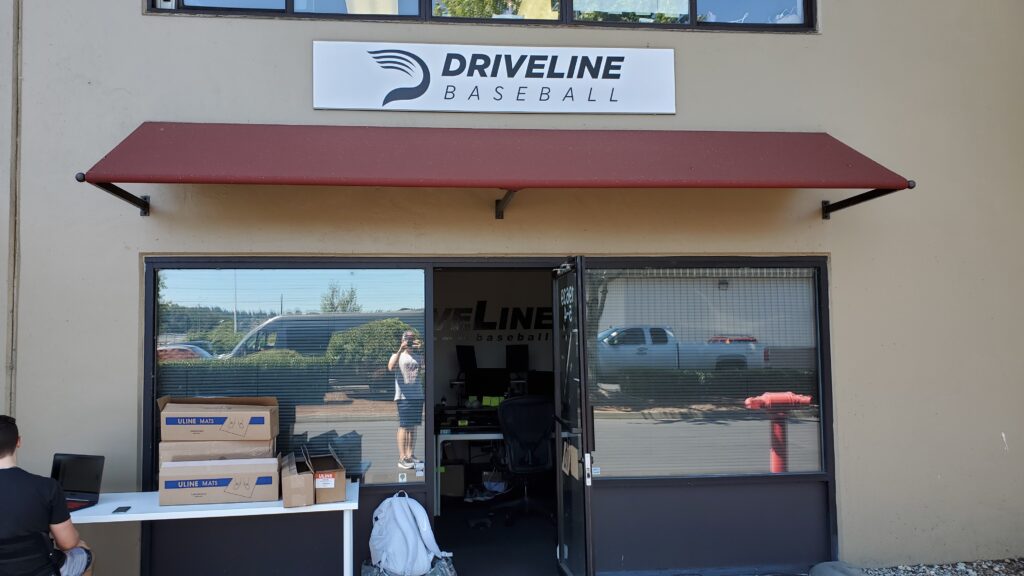
Before getting into the course, it is important to understand who “Driveline” is. Driveline Baseball is described in this New York Times article as “a data-driven baseball program.” Although this does encompass much of what the company is, one sentence does not do it justice. With three separate warehouse-style buildings in a complex south of Seattle, Driveline has been a training home to multiple Major League All-Stars, countless Minor Leaguer ballplayers, and a mix of College, High School and youth athletes over the last decade (you can also add javelin throwers in there). The company has grown from a single person training guys on his own, to a team of over 35 employees. Just last year the company was named the “sixth largest growing business in the state of Washington per the Puget Sound Business Journal.”

Through its growth, Driveline’s founder, Kyle Boddy, has been public about the difficulty of having products that are misused by coaches, programs, organizations and others that claim to “do Driveline.” Because of this, and other reasons he and CEO Mike Rathwell point out in their podcast (apple / spotify), the team has always had a certification in mind. It wasn’t until 2019, though, that Driveline felt confident to release “Foundations of Pitching to the public. Well worth the wait!
The Coursework
Now that we’ve covered Driveline Baseball as a company, let’s dive into “Foundations of Pitching.”
In order to become certified, users must sign up and complete both and online and onsite portion of the coursework. The online portion consists of 32 videos modules that are accompanied by a test at the end of each video. This portion, alone, will take users double-digit hours to complete.
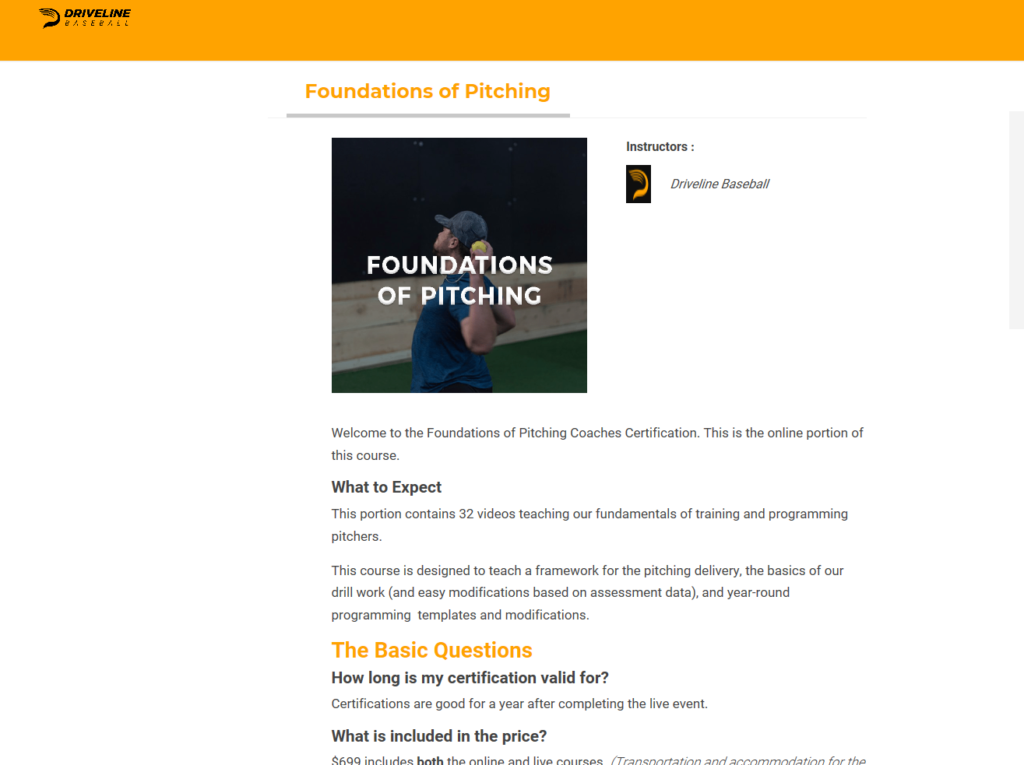
https://coaches.drivelinebaseball.com/courses/driveline-foundations-of-pitching/
Packed inside of the video modules is everything from basic planes of motion and relevant anatomy to specific drill work and an explanation of programming for athletes. After completing the online portion, users are invited to register and sign up for the onsite portion, currently held in Kent, Washington on various dates.
Once onsite, the two-day course work includes a review of the online portion, a dive into assessment, strength work, mechanical breakdown, drill assigning, programming, and group work to develop an entire plan for a player based on specific constraints. After completion of the onsite portion, participants are then given a final test to assess complete understanding of the coursework from both the online and onsite material. Only after a passing score can a participant claim to “do Driveline” and be certified for the Foundations of Pitching course.
My Experience
Having followed Driveline’s journey for at least 7 years and purchasing multiple information and physical products, I knew that they would knock this out of the park (see what I did there?). I was very eager to dive in when I saw that this program was going live. Registration was easy and within minutes I was able to pull up the first video modules and get started. The turnaround time was about 4 weeks from the course going live until the first onsite class in Kent. My goal was to get it finished in time to fly to Washington that month.
After completing the online portion and finding plane tickets, I reached out to the Driveline support team to setup a tour the Friday before the class. When I arrived in Seattle, I stopped at Taco Bell for a quick bite and then took an Uber to the facility. John Soteropulos greeted me and was an awesome tour guide. He took me through the entire working operations. We hit up the training floor, Research and Development, office spaces, and their shipping and receiving. In total I spent almost 5 hours onsite because there was so much to take in and John was able to answer every one of my questions while also introducing me to multiple employees.
After the tour, I checked into my nearby AirBnB, found a local restaurant and grabbed a bite for dinner. That night I made sure to get to bed early. Sleeping on a massage table, turned into a bed, made for an interesting sleep.
I enjoyed how Day 1 started off with a review of the material from the online portion presented by Kyle Rogers (former Driveline Baseball Lead Strength Trainer, now with CSUN Athletics). Review allowed for deeper discussion on energy systems, anatomy and planes of motion as well as time to cover additional topics like warm up protocols, exercise programming, and assessments. Bill Hezel (Manager of Mechanical Analysis) spent the rest of the time going over the throwing drills at length.
We were reintroduced to the throwing drills and discussed the variations of them, when to implement them, how they’re relevant to throwing, and what they were targeting. Everyone, in groups, broke down a lot of film and had a lot of good open dialogue during this time.
When we finished up with the drills, the event coordinator, Michael O’Connell (Technical Project Manager) promptly got the “Happy Hour” started. During this time, we all hung out and talked shop for about 90 minutes and were joined by multiple staff members of the Driveline team. This was a huge hit for the participants, as we did not expect to have such a large turnout. Whether or not that many employees can continue to come to the Happy Hour, it was a special perk of Day 1.
O day 2 we spent between 4 and 5 hours strictly on programming. This was such an important piece of the training and education because to know drills, but not understand how to plan and program them, is not useful and continues to feed into the struggle that Kyle has referred to with coaches that “do Driveline.”
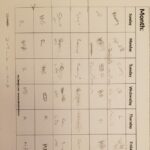
In small groups we planned and programmed, in great detail, weeks and months at a time for athletes in numerous scenarios. In talking with the other coaches in my small group, the feedback was that this was the most challenging and useful portion of the weekend. Working through all of the player scenarios made us look at the whole picture. We had lengthy discussions on how to best plan for that athlete’s success.
Once we worked through all of the given scenarios, we stuck around for additional discussion and questions. Afterward we were told how and where to access the final test online. A few stuck around to take the test there. I waited until dinner.
I took the Link Light Rail for I about $6 round trip to downtown Seattle to check out some sights, like the Space Needle. After missing the “fish throwing,” because they had closed for the night, I settled in and took and passed my final test during dinner.
Recommendations
Just a few things:
Schedule a tour of the Driveline facilities/campus by reaching out to their support team (support@drivelinebaseball.com) and bring a lot of questions because they’ll answer everything
Leave some time to hit up a local restaurant and/or do some sightseeing (Space Needle, Sporting Event, Fish Throwing)
Speak up and ask questions or present different ideas during the weekend because there are some really smart and experienced minds in the group
Network and get contact info from as many of the participants there as you can
Print off a copy of the information before attending – it’s a nice reference through the weekend
Bring your laptop for the video portions and a notebook for notes
Where to Register
To register for this course or others that are coming in the future, please visit: https://coaches.drivelinebaseball.com/courses/
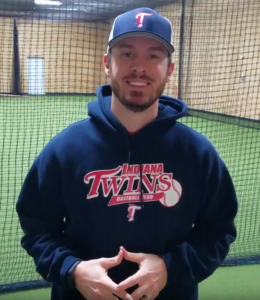
WRITTEN BY SCOTT HAASE
Scott Haase is the Pitching Coordinator for the Indiana Twins Travel Baseball Organization. In charge of over 180 athletes, Scott develops off-season programming for the entire organization. A former college pitcher with 7 years of coaching under his belt, Scott holds certifications from Driveline Baseball, OnBaseU, Baseball Think Tank, and is a Certified Personal Trainer. You can follow him on social media @ScottHaase14.
